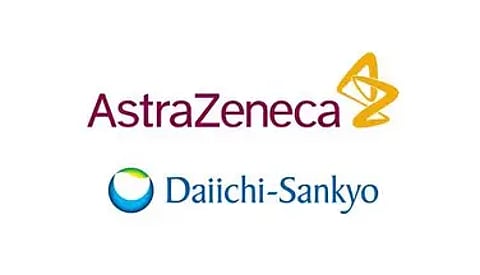

Positive results from the DESTINY-Breast11 Phase III trial demonstrated that ENHERTU® (fam-trastuzumab deruxtecan-nxki) followed by paclitaxel, trastuzumab, and pertuzumab (THP) in the neoadjuvant setting (before surgery) significantly improved pathologic complete response (pCR) rates in patients with high-risk, locally advanced HER2-positive early-stage breast cancer. The trial compared this regimen with dose-dense doxorubicin and cyclophosphamide followed by THP (ddAC-THP). A pathologic complete response is defined as no detectable invasive cancer in the removed breast tissue and lymph nodes after treatment.
In the trial, ENHERTU followed by THP achieved a pCR rate of 67.3%, compared with 56.3% for ddAC-THP, representing an 11.2% improvement. Benefits were observed across both hormone receptor (HR)-positive and HR-negative subgroups: HR-positive patients had a pCR of 61.4% versus 52.3%, and HR-negative patients achieved 83.1% versus 67.1%. Post-surgery, 81.3% of patients in the ENHERTU followed by THP arm had no or minimal residual invasive cancer (residual cancer burden [RCB] 0+I), compared with 69.1% in the comparator group.
The secondary endpoint of event-free survival (EFS) was not fully mature at data cutoff (4.5% maturity), but early analysis indicated a trend favoring ENHERTU followed by THP versus ddAC-THP (hazard ratio 0.56; 95% CI 0.26-1.17).
“For patients with early breast cancer who are at high risk of disease recurrence, using the most effective treatment option at the earliest opportunity is critical to prevent recurrence, optimise safety and improve the potential for cure. In the DESTINY-Breast11 trial, more than two thirds of patients had a pathologic complete response with trastuzumab deruxtecan followed by THP, suggesting a potential new standard of care in the neoadjuvant setting for patients with high-risk, HER2-positive early breast cancer,” said Dr Nadia Harbeck, Director of Breast Center, Cancer Department of OB&GYN and CCC Munich, LMU University Hospital, Germany, and principal investigator of the trial.
“The goal of treatment in the early breast cancer setting is to provide patients with the best possible chance for cure whilst optimising the tolerability of the treatment regimen. The impressive pathologic response rates and favourable safety profile seen with Enhertu followed by THP in DESTINY-Breast11 have the potential to transform treatment in the neoadjuvant setting and underscore the importance of bringing Enhertu into earlier stages of HER2-positive disease,” said Susan Galbraith, Executive Vice President, Oncology Haematology R&D, AstraZeneca.
“While achieving a pathologic complete response in HER2-positive early-stage breast cancer is critical for reducing disease recurrence and improving long-term prognosis, approximately half of patients still show evidence of residual disease following surgery with currently available neoadjuvant treatment options. The results from DESTINY-Breast11 show that treatment with Enhertu followed by THP prior to surgery resulted in no evidence of residual invasive disease in two thirds of patients, illustrating the first treatment regimen in more than a decade to significantly improve outcomes in the earliest treatment setting for HER2-positive breast cancer,” said Ken Takeshita, Global Head, R&D, Daiichi Sankyo.
The DESTINY-Breast11 trial positions ENHERTU followed by THP as a potentially transformative neoadjuvant therapy for patients with high-risk HER2-positive early breast cancer, offering significant improvements in pathologic response and the potential to enhance long-term outcomes.
Also Read